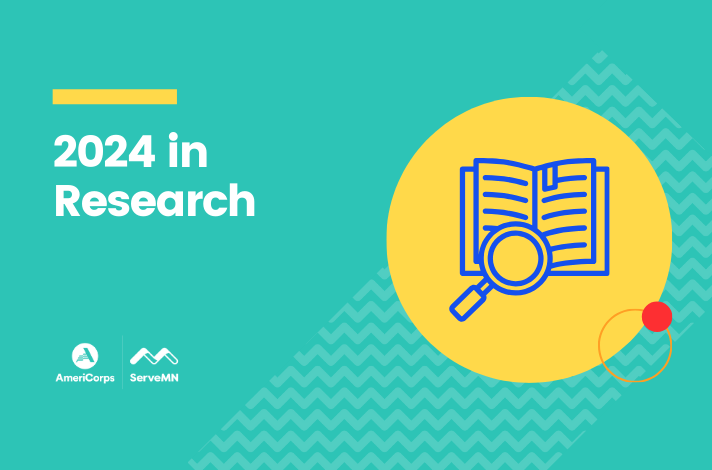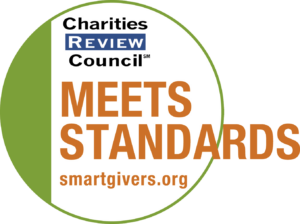ServeMinnesota operates in a dynamic place between research and practice. Throughout the year, our team of researchers document the impact of our programs in reports, evaluations, studies, and collaborations. They’re frequently published in well-known journals like HealthAffairs, the Journal of School Psychology, and the Journal of Research on Educational Effectiveness and Assessment for Effective Intervention; they work closely with researchers at universities and think tanks across the country. Our research improves our own programs, and also contributes to national conversations about how AmeriCorps programs support education, recovery, public health, conservation, and more.
To celebrate the end of the year, we’ve highlighted some of ServeMinnesota’s research findings in 2024. “With each year, our work builds on itself,” Chief Impact Officer Sandy Pulles noted. “Each finding deepens our understanding and strengthens our ability to deliver impactful support to Minnesota communities.”
Compared with 17 other programs, Math Corps is the most efficient
What we already knew: There are many math tutoring programs across the country, each with its own program design. It’s difficult for school districts to tell which program design is the most effective for students. Accelerate, an organization that funds and supports practices that advance student learning, reviewed 17 tutoring programs to determine their effectiveness and efficiency.
What we learned this year: Accelerate defines “tutoring efficiency” as the number of tutoring hours necessary to improve student learning by one month. Of the 17 programs reviewed, Math Corps is the most efficient, with just 6.1 hours of tutoring necessary to improve student learning by one month. The average number of hours necessary across all programs was 25.9. Read the study.
Reading Corps is an effective tool for English learners
What we already knew: About 10% of school-age students in the U.S. are English learners. English learners often benefit from strong academic support to build their English language reading skills.
What we learned this year: Studies demonstrate that Reading Corps makes a significant and positive impact on the literacy skills of English learners. This makes sense in part because Reading Corps includes instructions recommended for use with English learners, including phonological awareness and use of assessment data. Read a summary of these studies.
AmeriCorps is a pathway to high-demand careers
What we already knew: 86% of AmeriCorps members nationally join AmeriCorps to gain experience relevant to a specific career, and we saw those numbers reflected in our first-ever career survey for AmeriCorps members last year. We have several programs that help members attain reduced-cost professional certifications as part of their service, including Recovery Corps, Climate Impact Corps, and Reading Corps.
This year, we greatly expanded our career survey, reaching 1,500 Minnesota members. We also reached 440 AmeriCorps alumni in Minnesota for an alumni survey.
What we learned this year: Across programs, members gained skills specific to their particular service field. Members who earn certifications or licenses through service are twice as likely to have gained employment by the time their service term ended as those in programs without certifications. Certified members also reported a higher annual salary in their post-service employment.
Confirming what we learned last year, 83% of non-retired members planned to pursue a career in their program’s field after service. 90% of surveyed alumni felt participating in AmeriCorps was worthwhile for their professional goals. According to a study in HealthAffairs, Public Health Corps attracts new people to the Minnesota health field, with 79% of Public Health Corps members planning to pursue a career in public health.
More learnings from the research team
- Recovery Corps Case Study – ServeMinnesota and AmeriCorps’ national Office of Research and Evaluation published an evaluation of Recovery Corps showing that the program is a leader among AmeriCorps programs with a peer support model. A peer support model connects individuals with similar personal experiences to each other. In Recovery Corps, for example, AmeriCorps members who have experienced substance use disorder and are in recovery themselves support and guide people who are beginning their recovery journey. Read the study.
- Text Reading Fluency Study – Reading text requires complex knowledge, including sound awareness, word recognition, and text comprehension. This study found that support for reading should be tailored to the students’ combination of skills (their “profile”) rather than a one-size-fits-all approach. Read the study.
- Program Annual Reports – Our research team studies programs in annual reports. Examples of changes we made based on what they found include:
- Increased training for Recovery Corps and Heading Home Corps members on effective goal-setting with program participants.
- Increased tracking of Climate Impact Corps members’ goals to determine alignment with Minnesota’s Climate Action Framework, Native nation climate goals, and the needs of Minnesota’s communities.
Research on the horizon
The following research projects are planned to conclude in 2025 or later.
- Developmental Relationships in Math – In a forthcoming study, ServeMinnesota researchers found that math tutoring programs can help develop trusting relationships between tutors and students, especially for students of color and those from low-income backgrounds. The research base shows that student outcomes improve when educators establish quality relationships with students.
- Math Corps K-3 Randomized Control Trial – We’re conducting a randomized control trial for K-3 Math Corps to match similar evidence we’ve established for Reading Corps. Randomized control trials are the gold standard for understanding a programs’ effect on student learning.
- Accelerate Implementation Study – Accelerate will fund an evaluation examining how Math Corps’ impact and implementation differs across states. (Created in Minnesota, Math Corps’ model is implemented in states across the country.)
- Upcoming Recovery Corps Publications – In 2024, our research team brought Anthony Coetzer-Liversage, Ph.D., on board as Director of Healthy Futures Impact. He specializes in implementation science, with a focus on closing the research-to-practice gap in mental and behavioral health. His work on Recovery Corps will likely be published in 2025.





